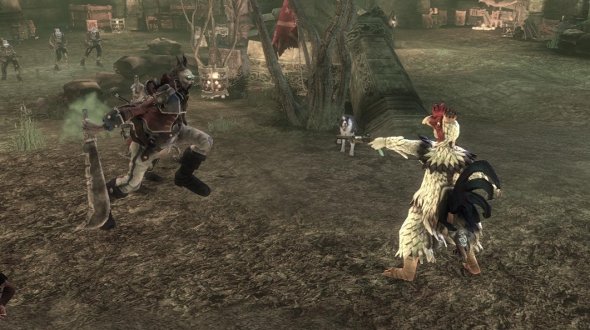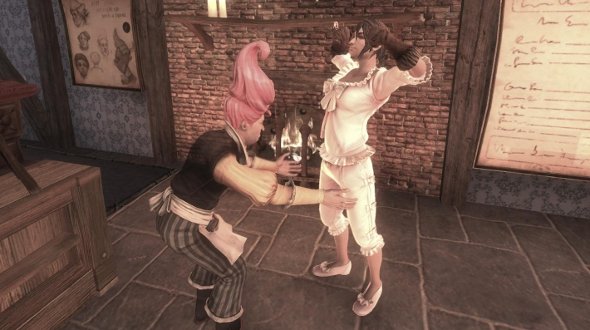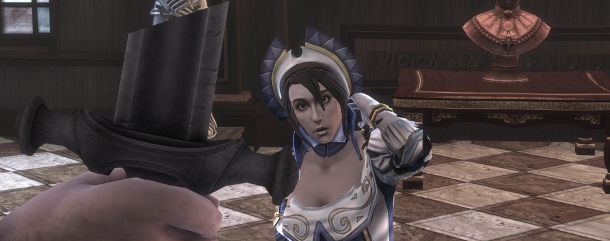Our Verdict
An acceptable, lighthearted RPG thats often too simple, too staid and too black and white to be much fun.
PC Gamer's got your back
Heavy is the head that wears the crown, and it's obvious from Fable III's opening that it won't be long before it's weighing down yours.
You play the sibling of the current, overly cruel king of Albion, and you're quickly catapulted from the castle into a life of RPG rebellion achieved by winning the support of the general populace. As heir to the throne, there's only one place you're heading with that sort of behaviour.
Yet exposing Fable III's endgame is no spoiler: not only is your fitness to rule taken for granted by everyone you meet, but the game has already been out for half a year on every other platform but ours.
Fable's fights can be approached with firearms, magic or melee weapons, but jumping between the stances is far from intuitive if you're using mouse and keyboard. You have to scroll between styles with the mousewheel, which makes your combat changes the result of planning, not brilliance. Couple that with a strange mouse lag evident on turning the camera, and I quickly switched to an Xbox 360 controller. It made fighting more fluid: whacking a skeleton with a hammer before shattering its bony body with a pistol shot becomes a satisfying process.

But it's a process too often repeated. Combat is Fable III's default state, and it doesn't deviate much. If anything, it gets simpler. I chose to pump my guild seals – collectables awarded for doing most things, from bashing enemies to kissing dudes – into levelling my magical abilities. Once I'd hit rank five, combat was a case of holding my area-of-effect spell until it was charged, then just letting go until the B button was hanging limp.
Lionhead used the time between 360 and PC versions to add a new 'challenging' mode to the game, but I blazed through the final conflicts with one hand free to drum on my desk. The difficulty of tougher fights – werewolves are particularly brutal – is defused by your respawning just a few centimetres from your corpse, the loss of a pouchful of guild seals your only punishment.
In short bursts, the fights are cheerful and rewarding and the quests have a sense of humour and grace that's missing in other RPGs. But you never get either in short bursts. Even the most engaging quests – shrinking down to play a real-life game of Dungeons & Dragons, or chasing a ghost drunk on power (and ale) through a graveyard – seem to panic when they reach their midpoints. Then they throw in a glob of turgid combat against cloned enemies.

My burgeoning aversion to combat led me to Albion's other timesinks. I was able to chat to nearly all of the kingdom's citizens, but beyond the welcome ability to belch in a child's face, I had little to gain from engaging with my soon-to-be subjects. Fable III's approach to morality is regimented: players can be saintly good or cartoon evil, neither of which alters the game in any serious way. Scold your staff, deny your friends or stuff your fat face with pies in front of starving children – you're still set for power.
The only true choice comes at the end of the game, and the outcome can be either utterly mystifying or underwhelming, as a threat from across the seas either kills all your subjects, or doesn't. This in a game predicated on talking to everyone. A little harder when they're dead.
Fable III is pockmarked with kernels of delight and imagination, but they're harder to root out among such a bland backdrop.
An acceptable, lighthearted RPG thats often too simple, too staid and too black and white to be much fun.


